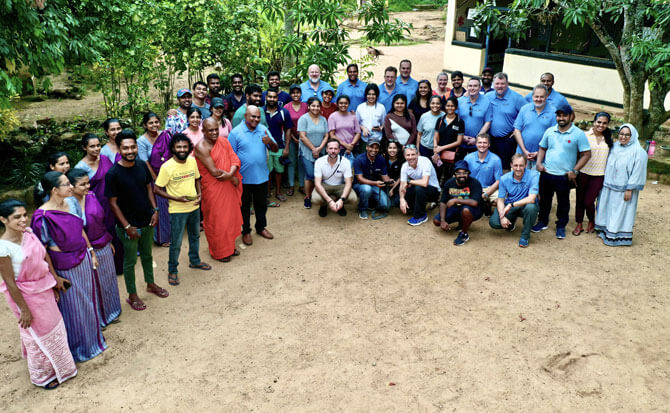The IFS Foundation is a group of independent, charitable organisations formed in 2020 to help break the poverty cycle in Sri Lanka. These charities collectively invest in a series of projects in partnership with local communities, addressing five key issues. You can read more about each focus area below.
With basic infrastructure like sanitation and access to fresh water, as well as quality schools and hospitals nearby, children in rural Sri Lanka stand a better chance of getting a decent education and securing the skills they need to find proper employment. The IFS Foundation partners with communities for a minimum of three years. Over this time, we hope that each community we work with becomes more autonomous and self-sustaining, so that the IFS Foundation can then help additional communities.
The aims of the IFS Foundation are guided by the Sustainable Development Goals developed by the United Nations. Using the SDGs helps the IFS Foundation to clearly identify critical focus areas and align our work accordingly. IFS Foundation projects contribute to different and sometimes multiple SDGs. Placing local partnerships at the heart of everything we do helps ensure we stay focused on helping individuals, families and entire communities to thrive.
Clean Water
Many rural areas are still lacking basic services such as access to clean water. The IFS Foundation understands that clean water is essential for good health, wellbeing and hygiene practices as well as preventing and containing diseases.
The IFS Foundation will look to improve access to water for agriculture and consumption through the installation of tube wells and water purification systems. These projects are aligned to SDG 6 - Clean water and Sanitation, ensuring availability and sustainable management of water and sanitation for all.
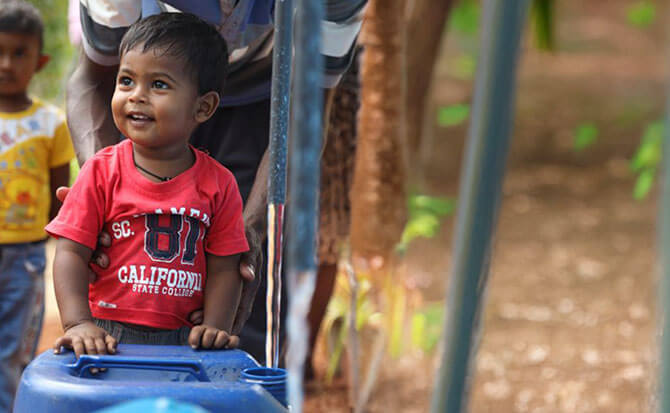

Education
Access to quality education is important around the world. Many children, particularly girls, can struggle to access adequate education to secure the skills they need for later life. Education can be a key factor in enabling socioeconomic mobility and escaping poverty.
The IFS Foundation works closely with schools in each community, ensuring that they are supported with resources and have adequate infrastructure to facilitate quality education for the local population. This includes building computer labs to promote STEM skills. These education projects support SDG 4 - Quality Education.
Entrepreneurial opportunities
Economic growth can drive progress, create decent jobs for all and improve living standards.
Creating an autonomous and self-sustaining community is an underpinning principle for the IFS Foundation. By investing in local industry and facilitating skill development, the IFS Foundation provides economic opportunity that will have positive benefits throughout the community. These projects are aligned to SDG 8 – Decent Work and Economic Growth
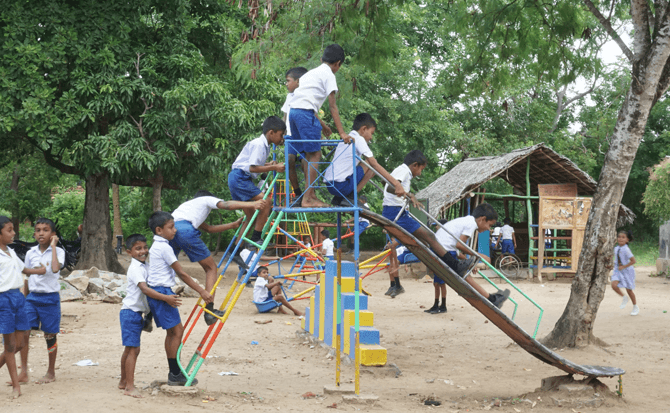
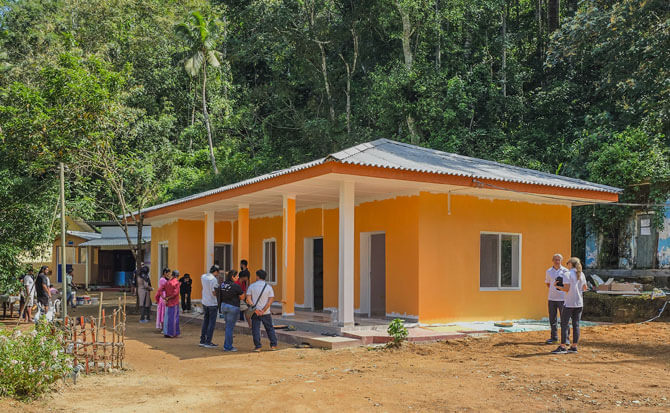
Healthcare
Good health and wellbeing is essential to sustainable development. Health systems, improved sanitation and access to affordable medical care can save the lives of many.
The IFS Foundation understands that suitable healthcare facilities, medical supplies and healthcare workers can save lives as well as preventing additional risk to the communities from disease and preventable health issues. The IFS Foundation is working with healthcare providers in Sri Lanka to ensure they have access to the supplies and facilities needed. These actions are aligned to SDG 3 – Good health and wellbeing.
Sanitation
Access to sanitation is a key focus for the IFS Foundation. Not only does it allow privacy, but it is also vital to ensuring the safety of the community by preventing and containing diseases. A lack of sanitation can leave communities vulnerable to diseases such as intestinal worms, trachoma and schistosomiasis.
The IFS Foundation looks to ensure the provision of sanitation facilities for the community and for families without. This includes schools to help girls continue education beyond puberty, and healthcare facilities to promote hygiene standards. These actions support SDG 6 - Clean water and Sanitation.
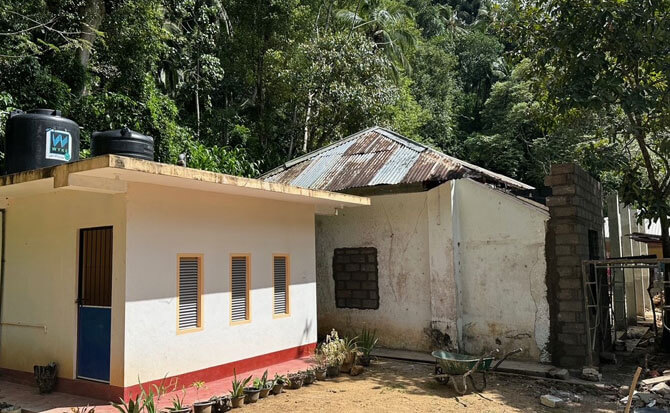
Why Sri Lanka
The IFS Foundation was created to give back to Sri Lankan communities as a result of the historic relationship between IFS and Sri Lanka. IFS has maintained operations in Sri Lanka since 1997 and the establishment of the IFS Foundation was an opportunity to say thank you and give back to the communities, while strengthening its social license to operate.
Initially, the IFS Foundation focused work in Welusumanapura, a group of villages located in the North-West region of Sri Lanka. The villages have a combined population of around 2,500 people living in over 700 homes. Families here earn a living mostly through subsistence farming and manual labor. 21% of the population’s per capita income falls below the national poverty line. Access to basic needs such as food, water and sanitation facilities is limited for many families.
From 2022, the IFS Foundation expanded their support to a second site in Weralugahamula. Our focus on empowering sustainable, thriving communities enables the Foundation to expand its operations over time, touching more lives, helping more families.
Partners
The IFS Foundation partners with various organisations across the globe including the IFS Group. Partners are a key part in the Foundation's strategy to alleviate poverty in rural Sri Lanka. Partners help the Foundation in fundraising, administrative burdens, volunteering and are critical to the accomplishment of our goals. We are grateful to all our partners, including the IFS Group, Hoist, Platned, Enterprise Analytics, Astra Canyon and Rigserv.
